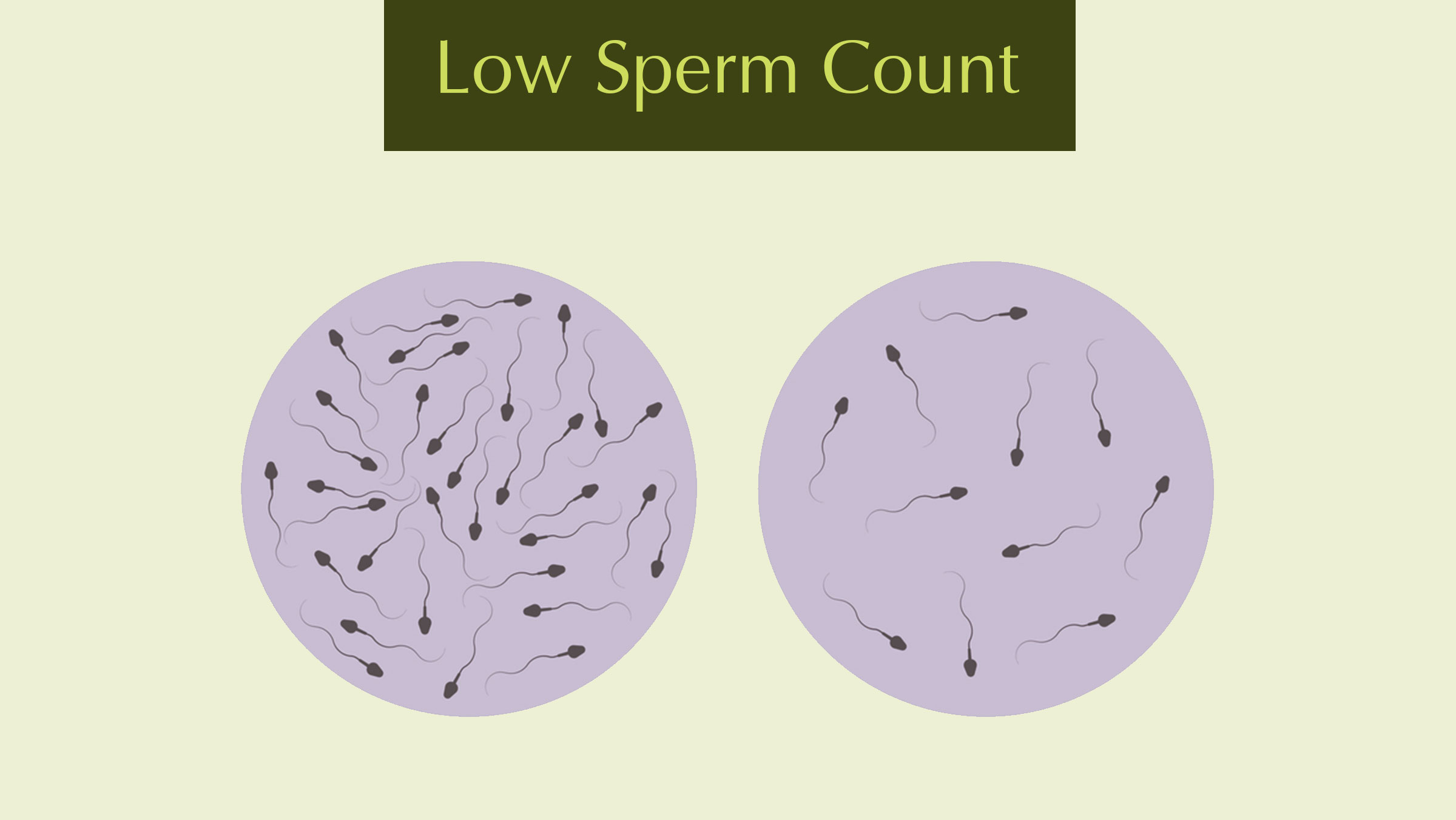
Oligospermia
You may not know you have a low sperm count (also called oligospermia) until you’re trying to have a baby and aren’t succeeding. Tests may show that you have fewer than the typical number of sperm. There are treatments for many causes of low sperm count.
What is oligospermia (low sperm count)?
Oligospermia is a term that means you have a low sperm count. One medical definition is that you have fewer than 15 million sperm in 1 millilitre of semen. A typical sperm count is more than 15 million sperm per 1 milliliter of semen.
Besides being known as low sperm count, oligospermia is also called oligozoospermia. A severely low sperm count (fewer than 5 million sperm in 1 millilitre of semen) is also known as severe oligospermia.
What is the difference between oligospermia and azoospermia?
Oligospermia means that you do have a measurable amount of sperm in your semen, but the numbers are lower than the typical numbers. If you have azoospermia, it means there no sperm seen in your semen.
Having a low sperm count is a significant factor in infertility. You may be infertile if you’ve been trying to get pregnant (or get someone pregnant) for a year and haven’t yet done so. This means that for at least a year you’ve been having regular sex without using birth control methods.
How common is oligospermia?
Researchers aren’t sure how many people have oligospermia. The condition isn’t usually diagnosed unless a couple is trying to conceive and can’t. There are an estimated 180 million couples throughout the world who are dealing with infertility.
Infertility among people who have been assigned male at birth contributes to about half of the infertility issues overall. (Healthcare providers may call this male infertility or male-factor infertility.) This figure of about 50% includes situations where male factor infertility is the only factor and those more common situations where there are fertility factors in both partners.
What are the signs and symptoms of oligospermia?
The main sign or symptom of a low sperm count is the inability to conceive a baby with a partner after one year of unprotected sexual intercourse.
What causes a low sperm count?
There are a variety of things that could cause you to experience oligospermia or other sperm disorders. The list of causes includes:
- Diseases, including those related to genetics, infection, hormones and obstructions (blockages).
- Environmental toxins.
- Heat.
- Drugs.
Diseases and conditions
Some of the diseases that can cause a low sperm count include:
- Genetic conditions such as Klinefelter syndrome and cystic fibrosis.
- Infections such as sexually transmitted infections, urinary tract infections, and viral illnesses including mumps.
- Issues like low testosterone and other hormonal abnormalities. Hypogonadism is a condition where the sex glands don’t produce enough sex hormones.
- Blockages that stop sperm from leaving your body.
Toxins
Toxins aren’t good for any part of your body, including sperm count. Some of the toxins that are present in the environment include heavy metals like arsenic, cadmium, lead and mercury.
Heat
Your testicles work best at a particular temperature, which is slightly lower than your body temperature. Heat-related situations that affect sperm production include:
- Having undescended testicles. If the testicles are still up near the groin, they’re too hot.
- Having varicocele. These twisted veins can be large and can increase the temperature of the testicles.
- Spending a long time in hot tubs. This cause may be reversed – your sperm count could increase once you stop spending time in hot water.
How is oligospermia diagnosed?
Your healthcare provider will take a medical history and do a physical examination. They may order other tests, including:
- Semen analysis and sperm function tests.
- Urinalysis to test for retrograde ejaculation (sperm moving backwards inside you).
- Imaging tests of your reproductive organs, including transrectal and scrotal ultrasounds.
- Tests of your endocrine system to measure hormone levels.
- Testing for genetic disorders.
How is oligospermia treated?
Your provider’s treatment suggestions will depend on the cause of the oligospermia. You may increase your sperm count by stopping medications or behaviours that are contributing to low sperm levels.
Other causes may need other treatments. For instance:
- You may need surgery to treat a varicocele or blocked sperm ducts.
- Your provider may prescribe hormone supplements.
- Your provider may prescribe antibiotics for infections.
- Your provider may suggest counselling to deal with issues like erectile dysfunction or premature ejaculation.
There are cases when you won’t be able to increase your sperm count. If you’re trying to conceive, your provider might suggest other ways to assist in reproduction.
Learn more about our procedures and your options by scheduling a consultation appointment with one of our doctors.
Schedule An Appointment
Get your Appointment Confirm with us Easily

